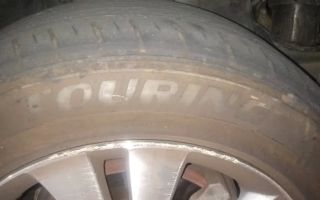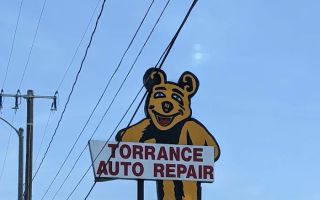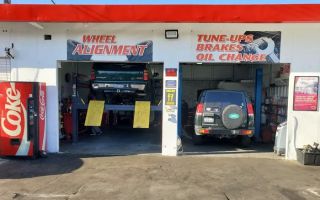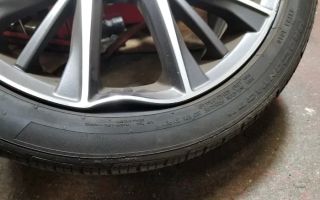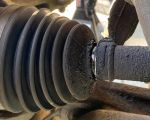- 1-Understanding Ignition Coil Function
- 2-Common Signs of a Failing Ignition Coil
- 3-How to Diagnose the Problem
- 4-Driving Risks and When to Stop
- 5-Repair Options and Costs
- 6-Preventing Future Ignition Coil Failure
- 7-Get Professional Help from Rescue & Towing
1. Understanding Ignition Coil Function
Before figuring out what to do if your car's ignition coil is failing, it helps to understand what this small but essential component does. The ignition coil transforms the car battery’s low voltage into the high voltage needed to create a spark in the spark plugs, which ignites the air-fuel mixture in your engine. Without a properly functioning coil, your car struggles to start, misfires, or even stalls during driving.
In modern vehicles, each cylinder often has its own ignition coil. This design improves efficiency but also means that if one fails, the rest may still function, masking the problem temporarily until performance noticeably drops.

Pick Your Part - Help Yourself
1232 Blinn Ave, Wilmington, CA 90744, USA
2. Common Signs of a Failing Ignition Coil
2.1 Engine Misfires and Rough Idling
A classic symptom of ignition coil failure is an engine misfire. You might notice your car shaking at idle or feeling less responsive during acceleration. This happens because the spark plug in one or more cylinders isn’t firing correctly.

Pick Your Part - Greer
13054 E Wade Hampton Blvd, Greer, SC 29651, USA
2.2 Difficulty Starting the Car
If your car takes longer than usual to start—or doesn’t start at all—the ignition coil could be the culprit. Cold mornings or damp weather often make the issue more noticeable since moisture can worsen electrical faults.
2.3 Poor Fuel Efficiency and Increased Emissions
A faulty coil can cause incomplete combustion, leading to wasted fuel. If you’re visiting the gas station more often without changing your driving habits, or if your car fails an emissions test, a weak ignition spark might be to blame.
2.4 Check Engine Light
In many cases, a failing ignition coil triggers the Check Engine Light. Diagnostic trouble codes such as P0351 to P0362 often point directly to ignition coil-related problems. You can use an OBD-II scanner to confirm the issue or have it checked by a professional technician.
3. How to Diagnose the Problem
3.1 Using a Diagnostic Tool
Modern cars provide valuable clues through their onboard diagnostic system. Plugging in a scanner can reveal whether an ignition coil is underperforming or has completely failed. Codes like P0300 (random misfire) or P0301 (misfire in cylinder 1) can indicate where to look.
3.2 Manual Inspection
If you’re mechanically inclined, you can visually inspect the coil. Look for cracks, burns, or melted plastic around the coil body. Also, check the electrical connectors for corrosion or loose wires. However, avoid touching any part while the engine is running to prevent electric shock.
4. Driving Risks and When to Stop
Driving with a bad ignition coil can cause more than just inconvenience—it can lead to serious engine damage. When combustion becomes irregular, unburned fuel may enter the catalytic converter, overheating it and causing costly repairs. If your car is shaking violently, losing power, or emitting strong fuel smells, it’s best to stop driving immediately.
In emergency situations, if your vehicle stalls or won’t start, contact Rescue & Towing. Their expert roadside team can help diagnose the issue safely and recommend nearby repair options.
5. Repair Options and Costs
5.1 Replacing the Coil
Replacing an ignition coil is a straightforward job for most vehicles. Depending on your car’s make and model, costs typically range from $100 to $350 per coil, including labor. High-performance or luxury vehicles may have more complex systems that cost slightly more.
5.2 Related Repairs
It’s common to replace spark plugs alongside the coil since worn plugs can accelerate coil failure. If the problem persists, the issue could also stem from wiring or the ignition control module. A qualified technician can test voltage readings to ensure all components work properly together.
6. Preventing Future Ignition Coil Failure
Ignition coils generally last between 80,000 and 120,000 miles, but maintenance plays a key role in longevity. Regularly changing spark plugs prevents excessive coil strain. Keep an eye out for oil or moisture leaks near the coil area—these are common causes of premature failure. Using quality fuel and following scheduled maintenance also helps maintain consistent performance.
Consider scheduling periodic inspections at trusted service centers like Rescue & Towing, where experienced mechanics can detect early warning signs before they escalate into breakdowns.
7. Get Professional Help from Rescue & Towing
If you suspect your ignition coil is failing, professional diagnosis is the safest route. Rescue & Towing offers reliable roadside assistance and expert repair support. Their team can quickly assess the problem, replace the damaged coil, and ensure your ignition system runs efficiently again.
Knowing what to do if your car's ignition coil is failing empowers you to act fast—protecting your vehicle, saving on repairs, and staying safe on the road. Whether you’re stranded or planning preventive maintenance, Rescue & Towing is your trusted partner for keeping your car in peak condition.



